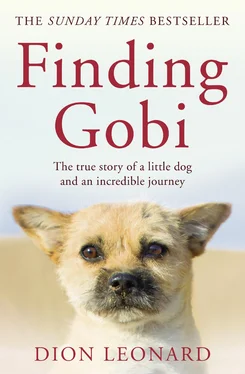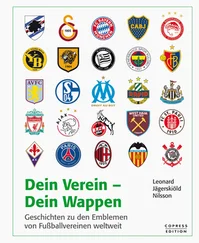Before I’d left Scotland, I’d read an e-mail from the organizers listing the top-ten runners they expected to do well. I wasn’t mentioned at all, despite having beaten a few of them in the past. A bit of me was still annoyed about it but not because my ego was bruised. There was no reason why they would have expected me to do well. Having not raced since a 132-miler in Cambodia eight months before, I felt I had become a forgotten nobody, and I didn’t blame them for passing me over.
I was annoyed with myself. I’d started running only three years earlier but already had enjoyed a few podium results. Coming to the sport so late, I knew I had only a tiny window in which to prove myself, and taking eight months off to recover had felt like a waste of precious time.
Before the briefing we had a kit check to make sure we each had the mandatory equipment required for the race. Even though we carry all the food, bedding, and clothes we will need for the entire six-stage, seven-day race, the aim is to keep our bag weights to a minimum. For me, that means no change of clothes, no sleeping mat, and no books or smartphone to keep me entertained at the end of the race. All I bring is a sleeping bag, a single set of clothes, and the absolute minimum amount of food I can get away with. I bank on 2,000 calories a day, even though I know I’ll burn closer to 5,000. I return home looking like death, but the lighter bag is worth it.
Later that day we were boarded onto buses and taken to the site where the race would begin, a couple of hours outside of Hami. I made small talk with a guy next to me, but mainly I kept quiet and tried to block out the noise of the three guys who had come from Macau behind me who were laughing and talking loudly the whole way. I turned around and half-smiled at them a few times, hoping that they’d pick up on my subtle hint for them to shut up. They just grinned back and carried on with their party. By the time we stopped, I was pretty fed up and hoping to get off and find some peace and quiet to start mentally preparing for the race ahead.
The locals put on a beautiful exhibition of regional dancing and horse riding, including a game that looked like polo but was being played with a dead sheep. I snuck off to find the tent I’d be staying in to claim my spot. On most multi-stage ultras, runners get assigned tent mates to camp with throughout the race. You never know who you’re going to get, but you can at least make sure you don’t get stuck with a terrible sleeping spot.
I stood in the old army surplus tent and wondered where to put myself. I never liked being near the door because of the draft, and the back of the tent often got a little cold too. I decided to chance it and take a spot in the middle, hoping that my fellow campers wouldn’t keep me awake by snoring or making a fuss.
I gave my kit a final check as the first three tent mates arrived. They looked sound enough and didn’t cause a ruckus as they chose their spots.
My heart sank when I heard the sound of laughter, looked up, and saw the three guys from Macau walking in.
Even though it was summer, the temperature was noticeably colder when the sun started to set. The local mayor gave a speech that I couldn’t understand, but the display of Mongolian dancing and high-speed horse riding was enough to keep me occupied for a while. Some of the runners were sitting around, eating their evening meals, but I wandered around. I got sidetracked looking at Tommy Chen’s film crew, but soon enough I was thinking about getting back to the tent. When people started asking one another what type of shoes they were running in, how much their bags weighed, or whether they’d brought any extra supplies, it was definitely my cue to leave. Getting involved in those kinds of conversations on the day before a race starts is never a good idea. The minute you encounter someone who is doing something different, you’ll end up doubting yourself.
I checked my watch—six thirty. Time to eat. Even though waiting can be hard when I’m nervous and it’s dark already, I always make sure I eat at the right time the night before each day’s race. You don’t want to eat too early and have your body consuming the calories before you’re actually running.
I got my food, climbed into my sleeping bag, and ate in silence in the tent.
I made sure I was asleep before anyone else came back.
3
People always get up way too early on the first day of these races. Their nerves get the best of them, and two or three hours before the start, the camp is buzzing with people packing and repacking their bags, eating their food, talking, and worrying about whether they’ve packed their bags right and eaten the right amount of breakfast at just the right time.
I get it. I’ve been there myself. But that’s not how I operate anymore. I have a routine that’s tried and tested.
Start minus ninety minutes—wake up, get dressed, visit toilets.
Start minus sixty minutes—keep warm in tent, eat high-calorie breakfast.
Start minus fifteen minutes—pack up sleeping bag and inflatable mattress, leave tent, and join start line.
To anyone watching, however, the last hour of my routine looks a little weird. I stay in my sleeping bag right up until it’s time to leave, even when I’m eating my can of All Day Breakfast. While everyone else is hopping up and down outside, having eaten their dehydrated meals, I’m curled up in my bag, beanie hat pulled tight over my head, tucking into a cold can of beans, sausage, bacon, and mushrooms. I get a few looks because no multi-stage runner in their right mind would ever carry canned food; it’s just not worth the weight. But I take just one can that I eat before the race starts, and the 450 calories are more than worth the bemused stares as people wonder what kind of amateur I am.
It tastes especially good knowing that for the next six days I’m going to be eating nothing but cold, rehydrated meals that taste like salmon or Bolognese-flavoured pasta, the occasional strip of biltong—dried and cured meat from South Africa—a few nuts, and dozens of energy gels. I’ll be sick of this food before the end of the week, but it’s lightweight nutrition that keeps my bag weight down.
I savoured every cold mouthful. I couldn’t see the three Macau boys anywhere, but I could tell that the rest of my tent mates—two Brits and one American—were staring at me like I was a fool who was way out of his depth. Nobody said anything, and once I’d eaten, I lay back down and curled up as tight as I possibly could in my bag. I guessed they were probably still staring.
With a quarter hour left, I climbed out of the sleeping bag, packed my things away in my rucksack, and headed for the line. People stared as I knew they would. They always do when they see me coming on the first day. My skin-tight running top is bright yellow and covered in my sponsor’s logo. And because I’m tall and skinny, I look like a banana. While confident in my pre-race preparation and training, I always start to question myself, seeing the start line. As much as I try to avoid it, I end up thinking the other runners look better than I do. They all seem to be fitter, stronger, and look more like endurance athletes while I suddenly feel like an amateur again. The only way through it is to clench my jaw, hide behind my sunglasses, and tell myself it’s time to get down to business.
For a lot of runners, the act of lacing up their shoes, heading out the door, and letting their lungs and their legs find their perfect rhythm as they run through nature is a beautiful thing. It’s about freedom, peace, and the moment when all time seems to stop and the stresses of daily life fade.
I’m not one of those runners. My wife is. Lucja runs because she loves running. She races because she loves the camaraderie and the sense of community. Not me. I don’t love running. I don’t really like it either. But I do love racing. I love competing.
Читать дальше












